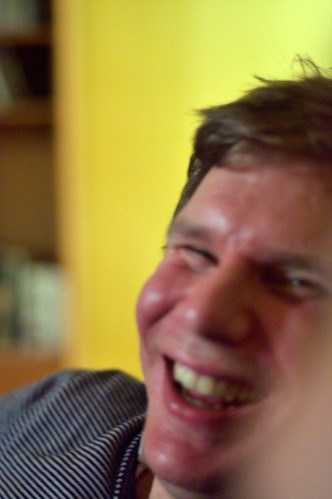I've been thinking a bit about an old blog post on less wrong by Eliezer Yudkowsky and trying to determine whether I disagree or agree with it.
The post calls out for a book to be published that will shallowly cover the basic mathematics of as many scientific fields as possible.
My initial problem with this idea is that math is really broad. Really really broad. So much so that it seems to me that the proposition that "The Simple Math of Everything, written for people who are good at math, might not be all that weighty a volume" is a bit of an absurd statement.
And even if we are to just consider the math used in sciences it seems rather silly to believe that one could read one book and then become a broad generalist. If I were to imagine someone who is like Yudkowsky's aspirational generalist I can't see such a person saying "last February I decided to study this text and now I know the basics of everything." It seems that a generalist, no matter how shallow, is a product of years of curiosity.
However, I am extremely sympathetic to the goal of generalism. I would just propose a different system to get there. I would begin with finding a local group of 6 or 7 who are also interested in this goal and schedule weekly two hour sessions with this group.
In the second hour of these sessions one member of the group will pick out a field or domain which she will present. Now there is only an hour so a little discipline will be necessary. I wouldn't spend anytime trying to explain why the audience should be interested in this topic; this is a group who desire to be generalists so they are expected to be interested in any topic new to them. And you can probably ignore history and biographical information. And please immediately kick out anyone who has any sentence resembling the form "the dictionary defines <> as <>."
I tend to like a problem based approach to learning instead of a solutions based approach. So I would begin with the solvable problems of the domain and then onto the basic methods and formulas used to solve them. And finally a little bit of homework using the methods.
Then the first hour of the following week can be used as discussion of the previous week (or presenting solutions to the homework if discussion requires a little push to get going).
How does the presenter learn the basics of her domain in the first place? In conventional ways I guess: find an expert, find a text, or find a blog.
If anyone does decide to start such a group could you create a blog for the presentations and send me the link. It would be nice to print them out once you've been going for a couple of years so I could have that as a resource on my desk. Maybe at some point I'll spend a month a read through them all ;)
Friday, May 29, 2009
Subscribe to:
Post Comments (Atom)

No comments:
Post a Comment